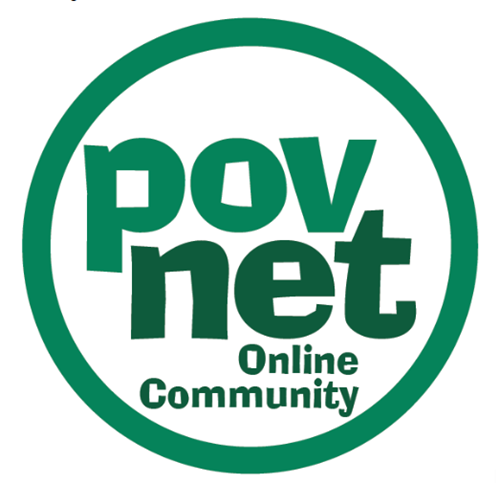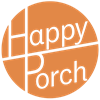Helping An Anti-Poverty Community Move Forward
At HappyPorch we aim to work with organisations who are making the world a better place, and one of the ways we do this is through our pro bono partnerships.
 We know from experience that there are plenty of charities and organisations out there that have some technical challenges to solve, but might not have the budget to hire someone on a commercial basis. So when our own team schedule allows it we like to support some of those organisations at cost or even free of charge.
We know from experience that there are plenty of charities and organisations out there that have some technical challenges to solve, but might not have the budget to hire someone on a commercial basis. So when our own team schedule allows it we like to support some of those organisations at cost or even free of charge.
In this post I would like to highlight one of our more recent pro bono projects to give you a flavour of the kind of things we do.
PovNet
Back in October 2018 we were approached by Nicky Dunlop, who is the Executive Director at PovNet. PovNet is a charity based in British Columbia, Canada that got started in 1997. Their aim was to create an online anti-poverty community.
Anti-poverty can be described as “the opposing of poverty, designed or intended to relieve poverty”. PovNet's goal is to assist people who are physically, mentally, socially, economically or otherwise marginalized and those who represent them in anti-poverty work to address access to justice issues through an integration of offline and online technology and resources. Those people vary from lawyers and social workers to community advocates, shelter workers and librarians. Basically anyone who regularly works with people in poverty and is trying to help them through it in one way or another.
One of the reasons that PovNet focused on an online community from the start is because of the wide range of poverty issues (e.g. welfare, housing, employment rights, migration status and Indigenous legal issues) and the need to cover a vast area; British Columbia is about 4 times the size of the United Kingdom, but has only 5 million residents. People in more remote towns would not necessarily have local access to help with poverty issues. But by building an online community PovNet is able to bring together knowledge from across the province.
Aging Technology
When PovNet started back in 1997 the most common way to run an online community was through mailing lists. People would subscribe to the mailing lists of the categories that they were interested in, and whenever someone had an issue they would send it as an email to the list and other subscribers of the list could reply with suggestions, helpful documentation or knowledge from their own experience when dealing with a similar problem.
And while the mailing lists had been (and still were) really useful for those 20+ years, there were also some technology issues that could do with solving.
The mailing lists were hosted on an outdated version of Sympa which the hosting provider at the time was not able to get it upgraded to a newer version. Not only did that mean some vital security fixes were missing, it also affected some of the common admin tasks like removing users from specific categories or email conversations that they no longer wished to be part of. Those were tasks that could only be done by an administrator and because PovNet’s team was only small at the time, it didn’t seem like the best use of their time.
Add to that some other annoyances, like out-of-office replies from mailing list users being sent to all other subscribers, and it definitely felt like time to look for alternatives.
So when Nicky approached us with the above and asked us for our advice and help, our team was interested and able to help PovNet out.
Not only was Nicky looking to fix the mailing lists, but she also laid out her vision of a more integrated community platform that could bring different parts of PovNet’s resources together in one easy to use space.
Research
PovNet previously already had some input on potential options for the community platform, so when we started our pro bono project we used that as our starting point.
One of the key requirements was that the new community platform should have support for the more traditional mailing lists mode, where users can start threads and respond to them by sending an email to the mailing list address, as a number of PovNet’s existing users were familiar with and preferred that way of interacting with the community.
One of the recommendations made to PovNet was to use DNN (formerly known as DotNetNuke) as the software for running the platform. And while DNN has plenty of options to create a community platform website and can be extended by various plugins, it turned out that the mailing lists were not supported by any of the available plugins.
So we had to go back to the drawing board and have another look at all the requirements and see if there were any other existing platforms available that matched the brief.
As we’re largely a group of developers at HappyPorch, it would be an obvious ‘instinct’ to start thinking about designing and building a bespoke platform that would meet all requirements. And while we have the right skill sets to achieve such a thing, the nature of a pro bono project is that we only have a limited amount of time available. So in this case it makes a lot more sense to look at existing platforms that either fully meet the brief or at least can easily be tweaked and extended to save on time. And that also means looking outside of your skill comfort zone and looking at options you might not have considered before. Because the main goal of a pro bono project should always be to deliver some real value to the organisation you are trying to help.
After spending some time researching the various options available, we decided that Discourse was showing the most promise. Not only did it have a fully-fledged community forum, it also had built-in support for the mailing list modes that PovNet were looking for. And through various plugins it could be extended in the future to add some of the other features that PovNet were looking for (wiki articles, events calendar, news pages, etc.).
We put our thoughts to Nicky and she agreed it looked like a good option, so we went ahead and created a plan to implement this.
Implementation
Our first step was to set up a test server with a Discourse instance. This would allow us to have a play around, familiarise ourselves with the platform and do some testing to confirm it would do what we wanted it to do.
Once that was done we made some tweaks to the Discourse installation to handle the sending and receiving of emails and handle the default settings when new users get added to the community by an administrator.
When that step was completed we handed it back to PovNet to let them do their own testing and setup, as they are more familiar with their current community and how people would be using it.
After the research phase PovNet had been able to use our proposed plan and timeline in a grant application to try and get some funding for hiring a community manager whose main job it would be to set up and maintain the new community platform on a day-to-day basis (e.g. adding new users, helping them with any issues, manage the various mailing list categories).
Thankfully the grant application was successful and Kate Fish joined the PovNet team as the new community manager.
Once Kate was up to speed with the new proposed platform she was able to test and review it. After that we were able to make some changes based on her feedback, and when that all was successful it was time to start thinking about the rollout.
Rollout
As part of the rollout we set up a new live instance of the Discourse server which had to be hosted in Canada to be closer to the actual users, and comply with local data regulation requirements. As part of their non-profit and charity program DigitalOcean was able to offer PovNet free hosting credit for the first year, which was incredibly helpful for a small charity on a budget.
Kate then spent some time setting up the various mailing list categories and onboarding screens for the new users. She tested it by recruiting some willing volunteers from their existing mailing list platform.
And once that was completed successfully, she invited all the existing users onto the new platform at the start of this year.
The new community platform has been running for a few months now and has over 300 registered users.
The transition from the old mailing lists to the new Discourse site has been received well. While some users have stuck to using it as a traditional mailing list, others have switched fully to the Discourse forum web interface or are using a mix of both. And that shows that Discourse is really able to support all types of users.
One user said: “Very straight forward and really smooth actually. User-friendly I’d say”.
And another one mentioned: “It’s fantastic so far, I much prefer it over the mailing list system”.
The move to the new platform also couldn’t have come at a better time, since the current corona virus crisis that has moved across the globe has meant that the need for PovNet’s online community is greater than ever. Not only does it provide a way for their users to interact online even more, but due to the increased need for poverty law help during these times (due to people threatened to lose their job or home) it is an invaluable resource as well.
Future
For us it has been great to work on this pro bono project and see that our work has made a positive impact on PovNet’s work.
Nicky at PovNet says: “Every day we discover something new that it does, that we're so pleased with. Kate is just putting together stats now but the onboarding went extremely smoothly and folks are really starting to engage and are really enjoying the new email lists. The improvement in how they run from an admin perspective is phenomenal and I know the users are really impressed as well. I just can't say how much I appreciate the work you've done and what this is going to do for the anti poverty community over here in Canada. Lots of folks coming together right now to help those struggling to navigate rent and income and everything that has been turned on its head. This new platform really makes that work a lot more manageable.”
In the next few months we hope to continue this by expanding the community platform and enabling features that will make it even more useful to PovNet’s contributors.

